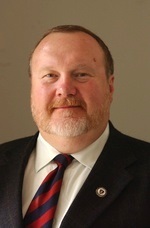For Sabadosa, Structural Reform the Key to House Progress…
NORTHAMPTON—When considering Lindsay Sabadosa and the arc of her life, her election to the State House of Representatives makes perfect sense.
She was a political activist before she could vote. Women’s issues and feminism have always been a focus of hers. Even her interests in history seemingly presage her campaign. However, her more recent history organizing for the Women’s March and pushing back against Donald Trump’s administration likely played a decisive role.
Sabadosa was sworn in as the 1st Hampshire district representative Wednesday, succeeding Peter Kocot who died last February. Even as she orients herself to State House, sponsors bills and builds her district budget requests, Sabadosa is targeting the process. Otherwise, she says, much of her broader agenda may never breach the House chamber doors.
“I think that was a lot of voter education, during the campaign, to say ‘These are all the policies we care about. Nothing is going to happen until we have these structural reforms,’” Sabadosa said.
The 1st Hampshire consists of Hatfield, Montgomery, Northampton, Southampton and Westhampton. It is one of five districts in the Upper Valley with new legislators—four reps and a senator—that once had decades of legislative experience among them. All but one are women.
Their legislative ambitions face an impediment many reps encounter. The House floor lies in the iron grip of the speaker, which has grown progressively tighter over the decades. Yet, challenging that status quo was a plank in Sabadosa’s platform.
Sabadosa was one of 15 candidates who took the transparency pledge. The pledge’s goals would lift the veil concealing much of Beacon Hill’s legislative arcana. The subject received new attention after Phil Sego, a retired environmental lobbyist, penned a blistering blog post on Beacon Hill’s legislative process.
Problematic status quos have been in Sabadosa’s crosshairs before. Speaking to WMassP&I at the Haymarket Café, days before her swearing-in, Sabadosa recalled her interest in politics growing up in Westfield. Gravitating to politics early, she remembers eagerly campaigning for the likes of John Kerry and John Olver. But she was disappointed in the dearth of women running for office in the Whip City.
“I had this moment when I became tired of only campaigning for men,” Sabadosa explained.
Instead she began to turn to women’s issues, namely reproductive freedom. “It is the core of everything, having autonomy over one’s body,” she said.
Despite an interest in politics, Sabadosa made her career in languages. While studying French and Italian at Wellesley, she found an unmet translation need. In China, many local businessmen spoke English, but not French, Italian or Spanish. She worked in Italy for a bit, but an old passion, politics, drew her home.
Sabadosa settled in Northampton, operating a translation business. She remained politically active, but it did not dominate her life. Then in 2016, the tectonic plates shifted under her.
“When [Trump] won, it felt like even the worst man was better than a woman. That was really hard to swallow,” Sabadosa said.

The 2017 Women’s March in Boston (WMassP&I)
“In college, I actually studied the rise and fall of fascism,” she said. “The part of Italian history that has always attracted me the most was the Italian resistance movement because it was so grassroots and really fierce and passionate.”
After the 2016 election, Sabadosa found a home in the local Women’s March chapter. By December, interest was surging, forcing Sabadosa—then organizing transportation to Washington—to summon buses from New Jersey to meet demand. People kept coming even as she warned there may be no room for them on the streets of DC. Some diverted to Boston or organized the Northampton march.
Rachel Maiore began organizing events with Sabadosa shortly thereafter. “Right off the bat at that time we did a lot around immigrant rights, organized protests at the airports,” she said referencing the first Muslim-nation travel ban. Then came women’s rights panels and events with refugee associations.
Early on, Sabadosa’s focus was maintaining momentum going, not elected office. She would never have challenged Kocot, whom she described as accessible and doing all the right things.
“He was a wonderful representative and a wonderful human being,” Sabadosa said of her late predecessor.

Peter Kocot (via malegislature.gov)
Still, his death changed the equation and after some time had passed, she began to think about it.
“We discussed her running because that was one of the early tenets of the Women’s March and Indivisible,” Maiore recalled.
Kocot’s aide, Diana Szynal, had jumped into the race within a few weeks of his passing, but Sabadosa took some time. She wanted her website and social media accounts to go live simultaneously. A planned retreat to the woods with her campaign kitchen cabinet turned into a working vacation.
After Northampton City Councilor Ryan O’Donnell joined and left the race to seek Stan Rosenberg’s seat, it was Sabadosa vs. Szynal. Like many cities, Paradise City politics has a machine-like quality and it favored Szynal.
But Sabadosa promised herself she was running for office, not against anyone specifically.
She was “relentless knocking on doors,” Maiore recalled. Sabadosa herself that when frustrated, she’d shake it off…by doing another round of doors. When advised to avoid door knocking in rural Montgomery, she called all 44 registered Democrats.
Supporters also emphasized the race was not a comparative analysis between the two women.
“I respected her years of service,” Pamela Schwartz said of Szynal. But Schwartz, a Pioneer Valley Resist coordinator and former city councilor here, also said there needed to be more movement on Beacon Hill.
As a candidate and now as a rep, Sabadosa has emphasized healthcare, the environment and criminal justice reform. Unsurprisingly given her activism around abortion rights, she will also seek legislation to improve access for women who face transportation impediments.
Many voters here, given the region’s activism, know Beacon Hill’s Byzantine ways well. Combined with a robust ground game, Sabadosa’s willingness to call out the process resonated with the electorate. They were sick of how Beacon Hill was operating and, fairly or not, that did not favor Szynal.
“It just really boils down to the way voting is done. The way bills are sent to study,” she said. For the uninitiated, studying a bill essentially euthanizes it for the session.

Rep. Maria Robinson (via votemariarobinson.com)
Maria Robinson, a new rep from Framingham, met Sabadosa after they won their nominations and have discussed the need for reform in the House. Robinson took the transparency pledge, too and has sought more votes and more sunlight on fundamental House operations.
“Where is that conversation [on bills] happening? Why is it not happening in front of constituents?” she asked rhetorically. The secrecy “is impacting policy, especially progressive policy in a negative way.”
Massachusetts voters favor more aggressive action on income inequality and climate change—a top priority given Robinson’s energy background—but are not getting it, she said.
Both Robinson and Sabadosa agree that ambitious proposals to tackle these issues and others could easily pass. Many could even overcome Governor Charlie Baker’s veto, if necessary. But the space isn’t even there to seriously discuss them now.
Robinson was one of eight reps that voted “present” for Speaker last week. Sabadosa voted for Robert DeLeo, but only after some obvious hesitation. She told WMassP&I it was not a technical issue. She simply wanted to think about her vote a bit longer.
“I think that, it wasn’t just me,” Sabadosa said. “There were a lot of people who campaigned on this idea of transparency, accountability need for reform, the need for less top-down government.”
Historically leadership might move to quickly crush such movements. Yet, it is rare for newcomers to lead them.
Timing may favor Sabadosa and her allies. Inertia may have cost two incumbents in DeLeo’s backyard their nominations. The new Senate President, Karen Spilka, has suggested she will take a firmer hand with the House.
On the home front, Sabadosa’s supporters want change, but they recognize it is a process.
“We are a community that is ready for change,” Schwartz said. But that is “certainly a matter of relationship building and strategy.”
Sabadosa also has a senate counterpart prioritizing similar issues like single-payer. In addition, she and Senator Jo Comerford are each other’s constituents. Comerford could deflect grief House leadership may aim at Sabadosa’s district as punishment.
Robinson, the Framingham rep, said newcomers have distributed some progressive priorities among themselves. For example, she is taking a lead on climate issues. Sabadosa has picked up the Medicare for All bill.
Other issues seemingly unique to the 413 have statewide resonance.
“East-West rail is near the top of list of things,” Robinson said. “It would be huge for Framingham. It would be huge for Worcester.”
There may be broader cultural shifts afoot. While some experts believe this happens when an organization becomes 30% female—29% of reps are women now—Sabadosa suspects it is already happening.
Some impact is subtle. Sabadosa has a 12-year-old daughter and lives the balancing act as a single-parent with a career.
“We don’t have enough people in office with young kids,” she said of the legislature.
At the same time, her daughter Kala has had a front-row seat to experiences Sabadosa herself would have coveted at that age.
Returning incumbents have told Sabadosa the State House can be an isolating place. Sabadosa has not found that, likening it to the burst of women entering Congress, who have been uplifting and empowering each other since Election Day.
Three @Wellesley alums – @lizforma @DianaDiZoglio and me – two reps and a Senator! #mapoli #firstyearacademy #day1 pic.twitter.com/04BVrLh7W3
— Lindsay Sabadosa (@SabadosaMA) December 13, 2018
“It’s really lovely to watch. I feel we’re doing a small, less nationally covered way,” Sabadosa said. “I feel I have really good friends already.”


